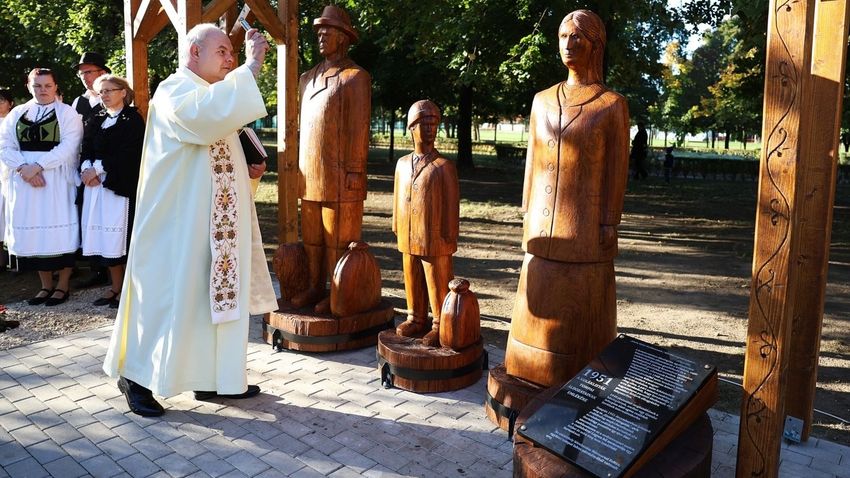– On December 16, 1951, ÁVH people stormed a family in Tomba. Children, women, men, old and young alike were put into trucks, then driven to Bajan cattle wagons and after a three-day journey, placed in stables in forced camps set up in the barren lands of Hortobagi. Those who were taken had all their property confiscated or nationalized, they were forced to work in inhumane conditions, and many starved, fell ill, or died due to the unbearable conditions.
Those who survived the exile tried to start their lives over, penniless, physically and mentally broken.
– explained the mayor.
We think of those families who in Hungary fell into the “sin” of owning 14 hectares of land, which made the regime of the time consider them capitalists, untrustworthy and enemies of the country. The backbone of the nation has been broken, and we are suffering since the main army of Hungary at that time was destroyed – said Government Commissioner Gábor Banjai, parliamentary representative of the region, in his speech.
Ildiko Hornyakne Sevok, author of the book that chronicles Tumba’s 100-year history, said there are still witnesses alive at the settlement who can tell stories. He said that witness accounts intertwined with personal memories give a true picture of what happened at that time. He also thanked Ernő Báics and Piroská Hustáné Baics, who attended the opening ceremony, and who helped create the volume through stories and sharing of resources.
The monument was jointly unveiled by Mayor László Véh and Ildikó Hornyákné Sivók.
We remember those who suffered at the will of others and, in the storm of history, became part of a cruel ordeal. They belonged to us, they were members of our community, our families. That is why the memorial erected by the Tomba community brings their memory to us. Let this memorial be a place where we think of them. Where we light the candle of remembrance and place flowers of respect. “Let this be a sacred place for us, which not only reminds us of human cruelty, anxiety and their victims, but is also a call to love, peace and respect for each other,” priest Zsolt Hozdek said in his homily. He then dedicated the new monument.












































